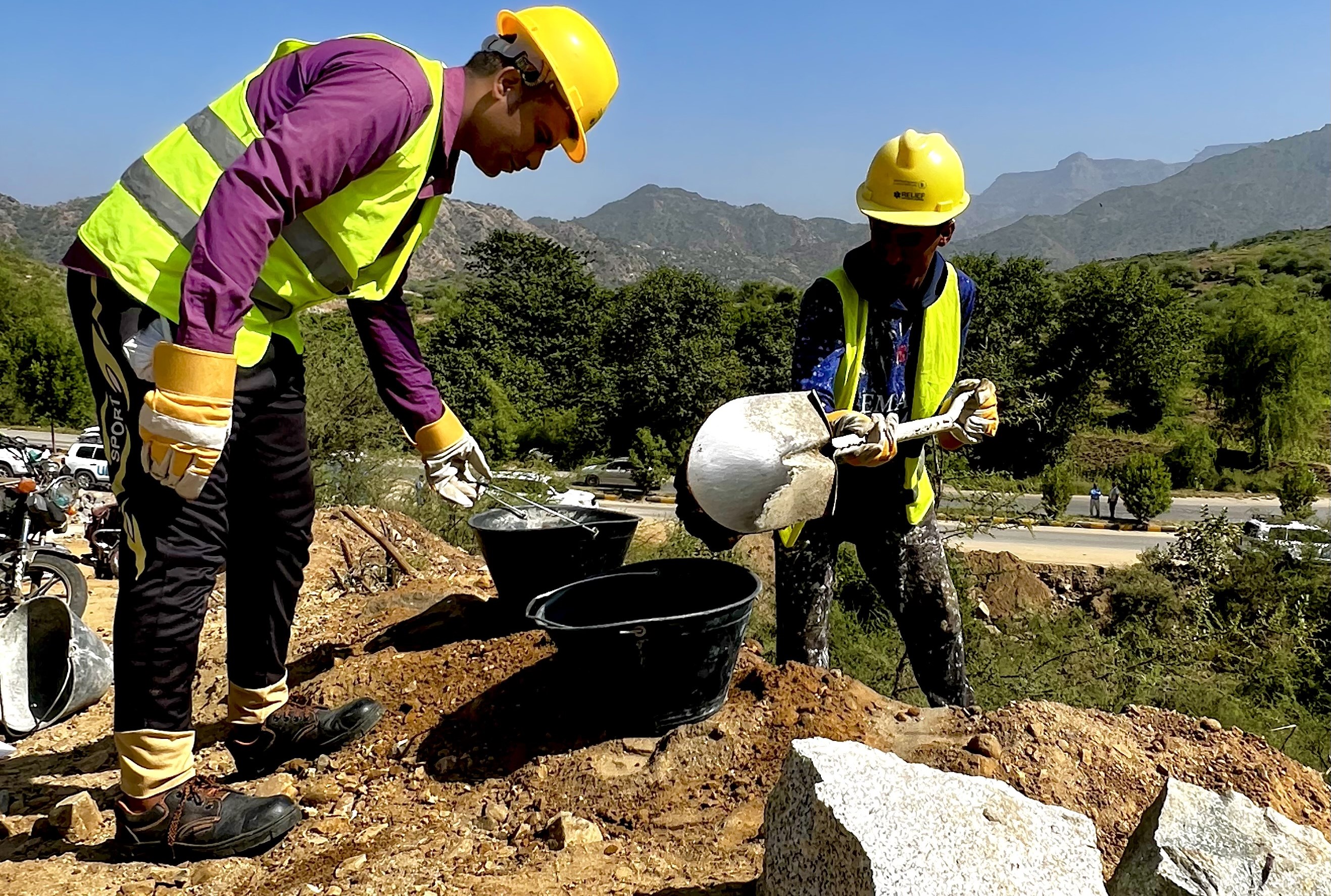Paving the Path to Hope: The Transformative Impact of Infrastructure and Empowerment in Najjrah District
January 8, 2024
"Paving a road isn't just about transportation; it's about connecting lives, building opportunities, and transforming communities." Kamal Al Sofi, Najjrah District Manager
In the heart of Najjrah District, Hajjah Governorate, the power of collaborative effort and the determination of the local community has spread hope and paved the path to progress. The initiative to pave a 3-kilometer road was a journey that impacted 170 households, providing not only smoother transportation, but a brighter future for an entire community.
For the 170 households who participated, the project has provided a lifeline in a landscape burdened with challenges. According to Ismail Saleh, a 43-year-old father, "The road isn't just a pathway; it's our gateway to a better life. It means quicker access to healthcare for my children and my wife. But more than that, the immediate cash support we received brought food to our table when times were tough. It's an investment in our community's well-being."
As a part of the ERRY III joint programme, the food for assets (FFA) project provides cash support to local community members, in exchange for their participation in infrastructure projects. By aligning economic assistance with community development efforts, the FFA project not only addresses immediate financial needs to 170 households but also fosters a sense of ownership and collaboration among residents, creating a sustainable pathway towards enhanced livelihoods and strengthened community resilience.
Ismail also highlighted the road's significance, envisioning improved access for villagers in need of urgent medical care. He noted that the cash support extended beyond the roadwork, providing essential food for his family, exemplifying the holistic impact of the initiative.
Kamal Al Sofi, District Manager Local Authority, emphasized the significance of the project, recognizing it as a crucial link that unites diverse villages, offering a lifeline to the most vulnerable. "This project is more than just a road. It's about easing longstanding suffering due to transportation costs, especially for students, patients, and pregnant women accessing essential public services. The impact is immeasurable and vital for our district's progress."
Sadeq Mohammed, a 24-year-old participant, saw more than just a road being built. For him, it meant the acquisition of new skills and an opportunity to pursue his dream of higher education. With aspirations of joining an engineering college unfulfilled due to financial constraints, he hopes the support received from this project will pave the way to realizing his ambition.
"I didn't just lay down bricks; I laid the foundation for my future. The skills I learned here aren't just about the road; they are steppingstones to a brighter tomorrow. I dream of attending an engineering college, and this project's support might just make that dream a reality," says Sadeq.
Through unity and joint endeavors, the ERRY joint programme aims to transform adversity into opportunity, improving livelihoods, food security, and overall resilience across various governorates in Yemen.
“The collaboration between UN agencies—WFP, ILO, UNDP, and FAO—under the ERRY III joint programme, with funding from the European Union and Government of Sweden, has catalyzed a change that extends far beyond the physical road. It has introduced sustainable improvements in health, education, water, and agriculture, areas that have long been lacking in the district,”Mr.. Kamal Al Soufi added.
Ismail's joy in providing for his family and Sadeq's hope for a brighter future echo the sentiments of many others involved in the project.
The road is a conduit for change, influencing livelihoods, access to essential services, and fostering a sense of hope and empowerment among local community members.
The ERRY III joint programme is funded by the European Union, the Government of Sweden, and supported by United Nations agencies including Food and Agriculture Organization (FAO), International Labour Organization (ILO), United Nations Development Programme (UNDP) and World Food Programme (WFP).


 Locations
Locations



